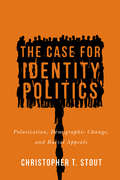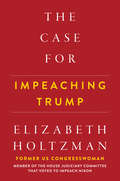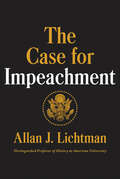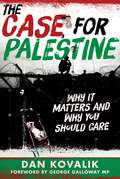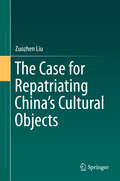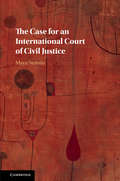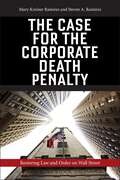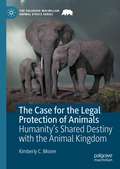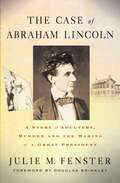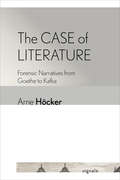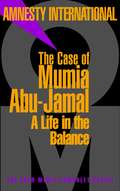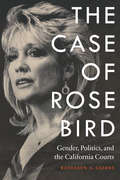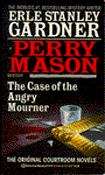- Table View
- List View
The Case for Identity Politics: Polarization, Demographic Change, and Racial Appeals (Race, Ethnicity, and Politics)
by Christopher T. StoutFollowing the defeat of Hillary Clinton in the presidential election of 2016, many prominent scholars and political pundits argued that a successful Democratic Party in the future must abandon identity politics. While these calls for Democrats to distance themselves from such strategies have received much attention, there is scant academic work that empirically tests whether nonracial campaigns provide an advantage to Democrats today. As Christopher Stout explains, those who argue for deracialized appeals to voters may not be considering how several high-profile police shootings and acquittals, increasing evidence of growing racial health and economic disparities, retrenchments on voting rights, and the growth of racial hate groups have made race a more salient issue now than in the recent past. Moreover, they fail to account for how demographic changes in the United States have made racial and ethnic minorities a more influential voting bloc. The Case for Identity Politics finds that racial appeals are an effective form of outreach for Democratic candidates and enhance, rather than detract from, their electability in our current political climate.
The Case for Impeaching Trump
by Elizabeth HoltzmanThe former US Congresswoman &“offers the Watergate investigation as a model for the kind of open, wide-ranging inquiry that she argues is necessary.&” —The New York Review of Books Elizabeth Holtzman has been a principled leader and a persistent voice for equality and accountability since she became the youngest woman ever elected to Congress in 1973, which she remained for forty-two years. But she saw American democratic ideals, and the rule of law in the United States, eroding under President Trump. And as a member of the House Judiciary Committee that voted to impeach Nixon, and one of the members of the Homeland Security advisory council who resigned in protest of President Donald Trump&’s policy of separating families at the border, former Congresswoman Holtzman knows of which she speaks. The Case for Impeaching Trump establishes the requirements for impeachment as set out by the Constitution and proves that President Trump&’s actions met those requirements. Holtzman makes the definitive, constitutional case that impeachment was justified. &“Elizabeth Holtzman has always been the first and the bravest, the smartest and most trusted. She is the expert we need to deal with an accidental President who got there as a serial sexual harasser, a candidate who lost the popular vote, and an unsuccessful businessman who was born on third base and thinks he hit a home run. Now what? Ask Liz!&” —Gloria Steinem Praise for Elizabeth Holtzman &“A forceful advocate.&” —USA Today &“Considered one of the brightest stars in New York City politics, earning a reputation for intelligence and honesty.&” —The Washington Post &“A Watergate hero.&” —The New Republic &“A woman of integrity who lives by her principles.&” —Publishers Weekly
The Case for Impeachment
by Allan J. LichtmanNATIONAL BESTSELLER “Lichtman has written what may be the most important book of the year.” —The HillWhat are the ranges and limitations of presidential authority? What are the standards of truthfulness that a president must uphold? What will it take to impeach Donald J. Trump? Professor Allan J. Lichtman, who has correctly forecasted thirty years of presidential outcomes, answers these questions, and more, in TheCase for Impeachment—a deeply convincing argument for impeaching the 45th president of the United States. In the fall of 2016, Allan J. Lichtman made headlines when he predicted that Donald J. Trump would defeat the heavily favored Democrat, Hillary Clinton, to win the presidential election. Now, in clear, nonpartisan terms, Lichtman lays out the reasons Congress could remove Trump from the Oval Office: his ties to Russia before and after the election, the complicated financial conflicts of interest at home and abroad, and his abuse of executive authority.The Case for Impeachment also offers a fascinating look at presidential impeachments throughout American history, including the often-overlooked story of Andrew Johnson’s impeachment, details about Richard Nixon’s resignation, and Bill Clinton’s hearings. Lichtman shows how Trump exhibits many of the flaws (and more) that have doomed past presidents. As the Nixon Administration dismissed the reporting of Bob Woodward and Carl Bernstein as “character assassination” and “a vicious abuse of the journalistic process,” Trump has attacked the “dishonest media,” claiming, “the press should be ashamed of themselves.”Historians, legal scholars, and politicians alike agree: we are in politically uncharted waters—the durability of our institutions is being undermined and the public’s confidence in them is eroding, threatening American democracy itself.Most citizens—politics aside—want to know where the country is headed. Lichtman argues, with clarity and power, that for Donald Trump’s presidency, smoke has become fire.
The Case for Impeachment: Articles of Impeachment
by the Office of Legal Counsel of the Center for American ValuesYou could be reading this headline in your newspaper sooner than you might think. Privately, any Democrats believe that impeachment proceedings are inevitable--and probably will begin within six months. PRESIDENT CLINTON IMPEACHMENT! WASHINGTON--By a vote of 72 to 28, the United States Senate voted today to impeach President William Jefferson Clinton. His removal from the office of the Presidency is effective immediately. He now faces criminal charges... In this book, you'll read shocking facts buried by the media, including... The selling of the Presidency to Communist China... in exchange for campaign contributions. Massive election fraud that makes political corruption in Third World countries pale by comparison. The use of IRS audits to intimidate and punish Clinton's political opponents. Details on how Clinton's White House security office was using the FBI to do "opposition research" on Republicans and critics of the Clintons. Al Gore's admission in a televised press conference that he indeed did commit a felony by illegally using his White House office to raise millions dollars for the 1996 Clinton-Gore re-election campaign. Attorney General Janet Reno's running of the most politicized Justice Department in U.S. history.
The Case for Impeachment: The Legal Argument for Removing President George W. Bush from Office
by Dave Lindorff Barbara Olshansky(From the book jacket) THE WAR IN IRAQ. NO-BID CONTRACTS AWARDED TO HALLIBURTON. HURRICANE KATRINA. THE CIA LEAK INVESTIGATION. ILLEGAL WIRETAPPING. THE STORY just keeps getting worse. The evidence is glaring. George W. Bush's record as a president is abysmal. And it's time to impeach him. The Case for Impeachment lays out the reasons why in a straightforward, letter-of-the-law manner. Juxtaposing hard facts with the lies and deceptions of this administration, The Case for Impeachment is a serious consideration of Bush's high crimes and misdemeanors while in office. This important and timely book will serve as a rallying cry for all those fed up with George W. Bush's abuses of power.
The Case for Palestine: Why It Matters and Why You Should Care
by Dan KovalikIn 1948, the State of Israel was founded. While the philosophy of Zionism that advocated for a Jewish homeland in what was then known as Palestine dates back to 1897, the creation of Israel in 1948 was justified by the terrible crime of the Holocaust committed by Nazi Germany during WWII. Many defenders of Israel would like us to believe that the creation of Israel was a peaceful process on a barely populated land, however, this is far from true. Rather, the creation of Israel was accompanied by what is known by the Palestinians as the Nakba(catastrophe)—an operation in which 700,000 Palestinians were violently expelled from their land and their homes. Since that time, Israel has continued to usurp more and more land from the Palestinians who they falsely portray as a people without a history and without a culture. Israel has been particularly cruel to the people of Gaza—70 percent of whom are refugees from the 1948 Nakba. Gaza has been converted by Israel into what some call a giant open-air prison surrounded by barbed wire. It is in this context that we are currently witnessing the tragic violence between Israel and the people of Gaza—violence on a scale not seen in this land since the Nakba of 1948. Indeed, many Palestinians are calling this a second Nakba, with around 1.5 million Palestinians already displaced and thousands killed. All of this is being accomplished by Israel with critical military and diplomatic support from the United States. This second Nakba is also being facilitated by the mainstream press that both downplays and justifies what many believe to be genocidal violence against the Palestinian people. The Case for Palestine is written as a counternarrative, with the hope that, if the truth is told, this violence and displacement can be stopped before it is too late; before Gaza is no more.
The Case for Repatriating China's Cultural Objects
by Zuozhen LiuThis book investigates China's demands for the repatriation of Chinese cultural relics 'lost' during the country's modern history. It addresses two main research questions: Can the original owners, or their rightful successors, of cultural objects looted, stolen, or illicitly exported before the adoption of the 1954 Hague Convention and the 1970 UNESCO Convention reclaim their cultural objects pursuant to remedies provided by international or national law? And what are the philosphical, ethical, and cultural considerations of identity underlying the international conventions protecting cultural objects and claims made for repatriating them? The first part of the book explores current positive legal regimes, while the second part focuses on the philosphical, ethical, and cultural considerations regarding repatriation of cultural objects. Consisting of seven chapters and an introduction, it outlines the loss of Chinese cultural relics in modern history and the normative framework for the protection of cultural heritage. It presents case studies designed to assess the possibility of seeking legal remedies for restitution under contemporary legal regimes and examines the cultural and ethical issues underpinning the international conventions protecting cultural heritage and claims for the repatriation of cultural heritage. It also discusses issues of cultural identity, the right to cultural identity and heritage, multiculturalism, the politics of recognition, cosmopolitanism, the right to cultural heritage, and other related issues. The concluding chapter answers the two research questions and offers suggestions for future research.
The Case for Vaccine Mandates
by Alan DershowitzIn The Case for Vaccine Mandates, Alan Dershowitz—New York Times bestselling author and one of America&’s most respected legal scholars—makes an argument, against the backdrop of ideologically driven and politicized objections, for mandating (with medical exceptions) vaccinations as a last resort, if proved necessary to prevent the spread of COVID. Alan Dershowitz has been called &“one of the most prominent and consistent defenders of civil liberties in America&” by Politico and &“the nation&’s most peripatetic civil liberties lawyer and one of its most distinguished defenders of individual rights&” by Newsweek. He is also a fair-minded and even-handed expert on civil liberties and constitutional rights, and in this book offers his knowledge and insight to help readers understand how mandated vaccination and compulsion to wearing masks should and would be upheld in the courts. The Case for Vaccine Mandates offers a straightforward analytical perspective: If a vaccine significantly reduces the threat of spreading a serious and potentially deadly disease without significant risks to those taking the vaccine, the case for governmental compulsion grows stronger. If a vaccine only reduces the risk and seriousness of COVID to the vaccinated person but does little to prevent the spread or seriousness to others, the case is weaker. Dershowitz addresses these and the issue of masking through a libertarian approach derived from John Stuart Mill, the English philosopher and political economist whose doctrine he summarizes as, &“your right to swing your fist ends at the tip of my nose.&” Dershowitz further explores the subject of mandates by looking to what he describes as the only Supreme Court decision that is directly on point to this issue; decided in 1905, Jacobson v. Massachusetts involved a Cambridge ordinance mandating vaccination against smallpox and a fine for anyone who refused. In the end, The Case for Vaccine Mandates represents an icon in American law and due process reckoning with what unfortunately has become a reflection of our dangerously divisive age, where even a pandemic and the responses to it, divide us along partisan and ideological lines. It is essential reading for anyone interested in a non-partisan, civil liberties, and constitutional analysis.
The Case for an International Court of Civil Justice
by Maya SteinitzWhen multinational corporations cause mass harms to lives, livelihoods, and the environment in developing countries, it is nearly impossible for victims to find a court that can and will issue an enforceable judgment. In this work, Professor Maya Steinitz presents a detailed rationale for the creation of an International Court of Civil Justice (ICCJ) to hear such transnational mass tort cases. The world's legal systems were not designed to solve these kinds of complex transnational disputes, and the absence of mechanisms to ensure coordination means that victims try, but fail, to find justice in country after country, court after court. The Case for an International Court of Civil Justice explains how an ICCJ would provide victims with access to justice and corporate defendants with a non-corrupt forum and an end to the cost and uncertainty of unending litigation - more efficiently resolving the most complicated types of civil litigation.
The Case for the Corporate Death Penalty: Restoring Law and Order on Wall Street
by Steven A. Ramirez Mary Kreiner RamirezA critical examination of the wrongdoing underlying the 2008 financial crisisAn unprecedented breakdown in the rule of law occurred in the United States after the 2008 financial collapse. Bank of America, JPMorgan, Citigroup, Goldman Sachs, and other large banks settled securities fraud claims with the Securities and Exchange Commission for failing to disclose the risks of subprime mortgages they sold to the investing public. But a corporation cannot commit fraud except through human beings working at and managing the firm. Rather than breaking up these powerful megabanks, essentially imposing a corporate death penalty, the government simply accepted fines that essentially punished innocent shareholders instead of senior leaders at the megabanks. It allowed the real wrongdoers to walk away from criminal responsibility. In The Case for the Corporate Death Penalty, Mary Kreiner Ramirez and Steven A. Ramirez examine the best available evidence about the wrongdoing underlying the financial crisis. They reveal that the government failed to use its most powerful law enforcement tools despite overwhelming proof of wide-ranging and large-scale fraud on Wall Street before, during, and after the crisis. The pattern of criminal indulgences exposes the onset of a new degree of crony capitalism in which the most economically and political powerful can commit financial crimes of vast scale with criminal and regulatory immunity. A new economic royalty has seized the commanding heights of our economy through their control of trillions in corporate and individual wealth and their ability to dispense patronage. The Case for the Corporate Death Penalty shows that this new lawlessness poses a profound threat that urgently demands political action and proposes attainable measures to restore the rule of law in the financial sector.
The Case for the Legal Protection of Animals: Humanity’s Shared Destiny with the Animal Kingdom (The Palgrave Macmillan Animal Ethics Series)
by Kimberly C. MooreThis book presents the case for legal protection for animals based on humanity’s shared interests and destinies with the animal kingdom. To underscore the urgent need for legal reform, the book documents how animals are in crisis, with separate discussions on animals in entertainment, research, fashion, the food industry, and animals in our homes, as well as issues that impact wildlife and aquatic animals. In each of the foregoing areas, there is a discussion of major developments for animals across the globe, the objective being to demonstrate how the U.S. is out of step with other major countries in its legal treatment of animals. The importance of media as a driver of change is also considered. This background culminates to the heart of the book, which discusses and analyzes the link between human rights and animal rights, with nine areas explored (e.g., loss of biodiversity; environmental destruction; zoonotic diseases; world hunger; violence). Challenges to legal reforms are also explored, including issues associated with weak laws, the failure to enforce existing laws, and governmental agencies that tend to overlook the actions of industries. Finally, the book explores the development of animal law and the trajectory of current laws, with analysis of developing ‘rights of nature’ laws and ‘legal personhood’ status for animals.
The Case of Abraham Lincoln: A Story of Adultery, Murder, and the Making of a Great President
by Julie M. FensterThe Case of Abraham Lincoln offers the first-ever account of the suspenseful Anderson Murder Case, and Lincoln's role in it. Fenster not only examines the case that changed Lincoln's fate, but portrays his day-to-day life as a circuit lawyer and how it shaped him as a politician. Drawing a picture of Lincoln in court and at home during that season of 1856, Fenster also offers a close-up look at Lincoln's political work in building the party that would change his fate - and that of the nation.
The Case of Literature: Forensic Narratives from Goethe to Kafka (Signale: Modern German Letters, Cultures, and Thought)
by Arne HöckerIn The Case of Literature, Arne Höcker offers a radical reassessment of the modern European literary canon. His reinterpretations of Goethe, Schiller, Büchner, Döblin, Musil, and Kafka show how literary and scientific narratives have determined each other over the past three centuries, and he argues that modern literature not only contributed to the development of the human sciences but also established itself as the privileged medium for a modern style of case-based reasoning.The Case of Literature deftly traces the role of narrative fiction in relation to the scientific knowledge of the individual from eighteenth-century psychology and pedagogy to nineteenth-century sexology and criminology to twentieth-century psychoanalysis. Höcker demonstrates how modern authors consciously engaged casuistic forms of writing to arrive at new understandings of literary discourse that correspond to major historical transformations in the function of fiction. He argues for the centrality of literature to changes in the conceptions of psychological knowledge production around 1800; legal responsibility and institutionalized forms of decision-making throughout the nineteenth century; and literature's own realist demands in the early twentieth century.
The Case of Mumia Abu-Jamal: A Life in the Balance (Open Media Series)
by Amnesty InternationalMumia Abu-Jamal has been incarcerated on Pennsylvania's death row for over two decades. His case has generated more controversy and received more attention, both national and international, than that of any other inmate currently under sentence of death in the United States of America.Mumia Abu Jamal, black, was convicted and sentenced to death in July 1982 for the murder of white police officer Daniel Faulkner on December 9, 1981. He has steadfastly maintained his innocence. Since the trial, those advocating his release or retrial have contested the validity of much of the evidence used to obtain his conviction. These accusations have been countered by members of the law enforcement community and their supporters, who have agitated for Abu-Jamal's execution while maintaining that the trial was unbiased.Based on its review of the trial transcript and other original documents, human rights organization Amnesty International believes that the interests of justice would best be served by the granting of a new trial to Mumia Abu-Jamal. This pamplet explains why.
The Case of Rose Bird: Gender, Politics, and the California Courts
by Kathleen A. CairnsRose Elizabeth Bird was forty years old when in 1977 Governor Edmund G. “Jerry” Brown chose her to become California’s first female supreme court chief justice. Appointed to a court with a stellar reputation for being the nation’s most progressive, Bird became a lightning rod for the opposition due to her liberalism, inexperience, and gender. Over the next decade, her name became a rallying cry as critics mounted a relentless effort to get her off the court. Bird survived three unsuccessful recall efforts, but her opponents eventually succeeded in bringing about her defeat in 1986, making her the first chief justice to be removed from the California Supreme Court. The Case of Rose Bird provides a fascinating look at this important and complex woman and the political and cultural climate of California in the 1970s and 1980s. Seeking to uncover the identities and motivations of Bird’s vehement critics, Kathleen A. Cairns traces Bird’s meteoric rise and cataclysmic fall. Cairns considers the instrumental role that then-current gender dynamics played in Bird’s downfall, most visible in the tensions between second-wave feminism and the many Americans who felt that a “radical” feminist agenda might topple long-standing institutions and threaten “traditional” values.
The Case of Valentine Shortis
by Martin L. FriedlandTwo men were shot and killed in the office of the Montreal Cotton Company in Valleyfield, Quebec, on a night in 1895. A third victim, shot through the head, managed to survive. Charged with the murders was Valentine Shortis, a young Irish immigrant. His trial, the longest on record at the time in Canada, was played out against one of the most dramatic periods in Canadian political history. Before the case closed it had involved some of the most important names in the country.Did Valentine Shortis commit murder in the course of a bold robbery, as the Crown and the citizens of Valleyfield believed? Or was he insane, as the defence argued and the leading psychiatrists in Canada contended? The best-known lawyers in Quebec fought out the issues in the courts, while politicians used the case to further their careers. As the trial dragged on it became part of the intricate political tapestry of the day, along with the Manitoba schools question, the revolt of the 'nest of traitors' from the Mackenzie Bowell's cabinet, and the federal election of 1896, in which Laurier used the Shortis case to help him become prime minister.As well as Laurier, other prominent Canadians made appearances in the case. Lady Aberdeen, the wife of the govenor-general, mysteriously put a word in the ear of Sir Charles Hibbert Tupper, the young minister of justice. We meet the larger-than-life psychiatrists, C.K. Clarke and R.M. Bucke, sex-educator Arthur Beall, and even Mackenzie King and his spirits.Martin Friedland has vividly reconstructed one of the most dramatic criminal cases in Canada's history. Along the way he reveals much about our political past, the criminal process, French-English relations, and the history of psychiatry and corrections. Above all he tells a fascinating and compelling tale of murder and politics.
The Case of the Amorous Aunt
by Erle Stanley GardnerPerry Mason tells Della Street to get her notebook and pen ready, since they are getting Aunt Lorraine and Montrose Dewitt out of bed.
The Case of the Angry Mourner
by Erle Stanley GardnerA playboy is murdered in his lakeside cabin and a mother and daughter, who had both been there, start to suspect each other so they call on Perry Mason for help.
The Case of the Baited Hook
by Erle Stanley GardnerWho was that masked woman? That's the question plaguing the perpetually inquiring mind of Perry Mason. No one loves a good mystery more than Mason--but being asked to represent a client who's concealing her identity, not to mention the particulars of her case, has given even the legendary legal eagle a case of ruffled feathers.
The Case of the Beautiful Beggar
by Erle Stanley GardnerA beautiful debutante is shocked. Her beloved wealthy uncle is missing. Strange relatives are in charge of his fortune- and they're counting her out. Then a dead man surfaces, pointing his finger straight at her. Now she's desperate. To Perry Mason, however, it's all in a day's work. With clever secretary Della Street and street wise detective Paul Drake, he takes on THE CASE OF THE BEAUTIFUL BEGGAR.
The Case of the Black-Eyed Blonde
by Erle Stanley GardnerA beautiful blonde gets a fist in the eye from her employer's son, and Mason must defend her when her roommate is murdered.
The Case of the Blonde Bonanza
by Erle Stanley GardnerPerry Mason asks, "Why would anyone hire a girl with the figure of a strip teaser and pay her $100 a week to put on weight?"
The Case of the Buried Clock
by Erle Stanley GardnerA returning war veteran stumbles across a buried clock that is apparently keeping sidereal time. A murder victim is found in a rural area where, it seems, all the neighbors go out for walks at night.
